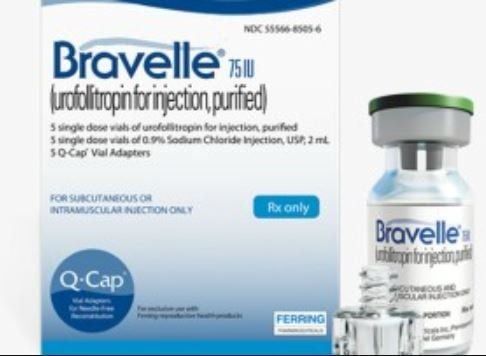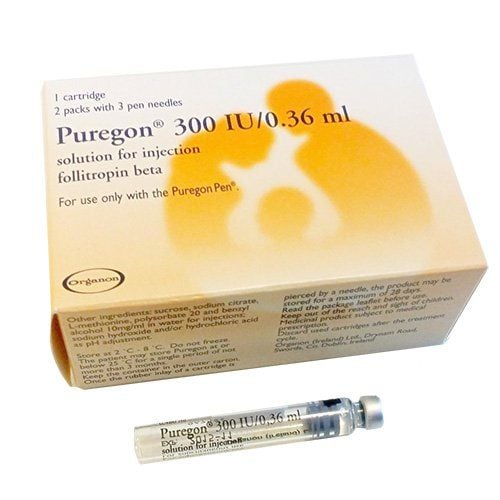This is an automatically translated article.
Currently, the selection of embryos for transfer based on embryo morphology alone will not bring high efficiency in the treatment of infertile patients. Therefore, having an embryo biopsy to find out if the embryo's chromosomes is normal or not helps to increase the chances of pregnancy and giving birth to healthy babies, without genetic diseases.1. What is an embryo biopsy?
Preimplantation genetic testing (PGT) is a technique used Before embryo transfer to help identify abnormalities in the embryo's chromosomes, prevent certain diseases or genetic disorders. transmission is passed from parent to child.Embryos with an abnormal set of chromosomes often lead to miscarriage or birth with genetic diseases such as Down syndrome.
2. How is an embryo biopsy done?
The first step to performing preimplantation genetic testing is to perform an in vitro fertilization process that includes egg retrieval and insemination with sperm in a laboratory. Embryos will be grown in an incubator until the embryo stage. day 5.Next, perform the following steps:
First, the doctor will perform a biopsy of the embryo on day 5 by taking 3 - 5 cells from the embryo. Day 5 embryos have more than 150 cells, so this biopsy does not affect the quality of embryos. This embryo is then frozen. The biopsy sample will then be taken to a genetics laboratory to identify abnormalities in the embryo's chromosomes, if any. This process takes at least a week. Once the doctor has determined that the embryo has no genetic problem, the embryo will be placed in the uterus and wait for the embryo to implant, then check the mother is pregnant or not. From egg retrieval to conception, preimplantation genetic testing can take up to several weeks and includes: this includes egg aspiration, artificial insemination, 3-5 days to embryo development, 1-2 weeks of genetic testing and embryo transfer. Therefore, couples should know the schedule to follow the procedure advised by the doctor.
3. Who should perform an embryo biopsy?

Người vợ liên tục sảy thai nên thực hiện sinh thiết phôi
Presence of disorders sex-linked inheritance. There are single gene disorders. Have a chromosomal disorder. Wife 35 years or older. The wife repeatedly miscarried. The wife had more than one failed fertility treatment. Embryo biopsies have also been used for fetal sex selection purposes. However, removing embryos based only on sex is related to ethical issues and in Vietnam, choosing the sex of the fetus is illegal due to the imbalance of sex and many consequences later.
4. What are the benefits of preimplantation genetic testing?
Here are some of the benefits of doing the right preimplantation genetic diagnosis:More than 100 different genetic diseases can be screened. The technique is performed before the embryo is implanted in the uterus, thus allowing couples to decide if they want to continue with the pregnancy. Allows infertile couples to have healthy children.

Kỹ thuật này cho phép các cặp vợ chồng hiếm muộn có con khỏe mạnh
5. Disadvantages of Embryo Biopsy
Although preimplantation genetic testing reduces the chance of the fetus developing genetic disorders, this risk cannot be completely eliminated. In some cases, women still need to have other tests during pregnancy such as chorionic villus sampling. Despite genetic testing, some diseases begin to show symptoms when the carrier reaches middle age. Therefore, couples will have to consider accepting this risk and later the adult child will need to see a doctor for treatment. Note that preimplantation genetic diagnosis is not a substitute for prenatal testing. At Vinmec International General Hospital, there is a genetic screening service before embryo transfer, in order to identify genetic abnormalities at the chromosomal level, thereby selecting the best embryo before embryo transfer.Genetic screening service before embryo transfer at Vinmec aims to:
Increase implantation and IVF success rates. Reduce the number of IVF sessions. Increased success rate when transferring an embryo. Increase the success rate in elderly women, especially over 35 years old
If you have unusual symptoms, you should be examined and consulted with a specialist.
Please dial HOTLINE for more information or register for an appointment HERE. Download MyVinmec app to make appointments faster and to manage your bookings easily.
References: americanpregnancy.org; webmd.com













